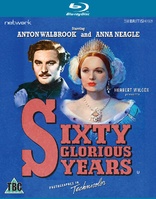本站提供 蓝光Blu-ray/HDTV 720P/1080P/2160P/4K 蓝光原盘 电影电视,硬盘代拷贝
代拷贝收费标准:例如:1TB硬盘(实际可拷贝930G)=100元,1.5TB硬盘(实际可拷贝1396GB)=150元,2TB硬盘(实际可拷贝1862GB)=200元,3TB硬盘(实际可拷贝2792GB)=300元。本站也有全新拷满自选片源硬盘出售。 网盘下载1G=0.2元,50G起。使用的网盘:115网盘 联系方式: 阿里旺旺:  淘宝店铺:http://94hd.taobao.com 淘宝店铺:http://94hd.taobao.com |
|
| ||
|---|---|---|
| 英文片名 | Sixty Glorious Years | |
| 中文片名 | 荣耀六十年 (1938) | |
| 类型 | 剧情 | |
| 地区 | 英国 | |
| 文件大小 | 18.89 GB, 蓝光原盘 1080p | |
| 文件格式 | BDMV/AVC | |
| 音轨 | 英语 LPCM 2.0 | |
| 字幕 | 英文 | |
| IMDB评分 | 6.6 | |
 ◎译 名 荣耀六十年 / Queen of Destiny ◎片 名 Sixty Glorious Years ◎年 代 1938 ◎产 地 英国 ◎类 别 剧情 ◎语 言 英语 ◎上映日期 1938 ◎豆瓣链接 https://movie.douban.com/subject/5088083/ ◎片 长 95 分钟 ◎导 演 赫伯特·威尔科克斯 / Herbert Wilcox ◎演 员 安东·沃尔布鲁克 / Anton Walbrook 马尔科姆·基恩 / Malcolm Keen 弗雷德里克·莱斯特 / Frederick Leister Edward Lexy Edward Lexy Gordon McLeod Gordon McLeod 迈尔斯·马勒森 / Miles Malleson Olaf Olsen Olaf Olsen 沃尔特·瑞拉 / Walter Rilla Pamela Standish Pamela Standish C.奥布雷·史密斯 / C. Aubrey Smith Jack Watling Jack Watling Henry Hallett Henry Hallett Wyndham Goldie Wyndham Goldie 格里塔·斯楚瑞德 / Greta Schröder 德里克·德马尼 / Derrick De Marney Joyce Bland Joyce Bland Harvey Braban Harvey Braban Lewis Casson Lewis Casson Frank Cellier Frank Cellier Stuart Robertson Stuart Robertson 查尔斯·卡森 / Charles Carson 费利克斯·艾尔默 / Felix Aylmer 奥布里·德克斯特 / Aubrey Dexter 安娜·尼格尔 / Anna Neagle Laidman Browne Laidman Browne ◎编 剧 迈尔斯·马勒森 / Miles Malleson ◎制 片 人 赫伯特·威尔科克斯 / Herbert Wilcox ◎音 乐 安东尼·科林斯 / Anthony Collins ◎摄 影 弗雷迪·扬 / Freddie Young ◎美 术 Lawrence P. Williams Lawrence P. Williams ◎服 装 Doris Zinkeisen Doris Zinkeisen Tom Heslewood Tom Heslewood ◎化 妆 Patricia Pearce Patricia Pearce ◎副 导 演 Lloyd Richards Lloyd Richards ◎视觉特效 W. Percy Day W. Percy Day 彼得·艾伦肖 / Peter Ellenshaw ◎简 介 Sixty Glorious Years is an exercise in the creation of iconography, both for Victoria and its star, Anna Neagle (who subsequently became known as 'Regal Neagle'). Just as Elizabeth I commissioned artists to create flattering iconic images for public consumption, so this film performs a similar function, for Neagle is more beautiful than the real life Victoria. Controversial events (such as the 'Irish problem') are omitted and unpleasant aspects of Victoria's character (her petulance, arrogance, favouritism and 'right to privilege') are glossed over as endearing little 'whims'. Albert acts as a moderating influence when she goes too far. The film followed a year after the highly successful Victoria the Great (d. Herbert Wilcox, 1937). Again the screenplay is by Miles Malleson and Robert Vansittart, and many of the supporting cast (the cream of acting talent of period) repeat their roles, this time for the colour cameras. This was the first full length Technicolor film of cinematographer Freddie Young, who captures the spectacle of royal weddings, grand balls and opulent interiors, with scenes actually filmed at royal palaces. Vivid battle scenes, set in Alexander Korda's empire territory (Sevastopol and the Sudan), rival those in The Four Feathers (d. Zoltan Korda 1939). The title music sets the tone: a regal choir sings over a shot of the crown. Elgar's 1901 'Pomp and Circumstance' march is heard during the diamond jubilee celebrations and, as Victoria's coffin lies in state, the film concludes with Anthony Collins' stately music accompanied by the text of Rudyard Kipling's 'Lest we forget'. Combined with the emotional appeal of scenes of Victoria connecting with her 'ordinary folk', this is stirring stuff. The film connects with contemporary events of 1938. The release of two celebratory royal films was intended to boost public affection for the monarchy in the wake of Edward VIII's abdication. Anglo-German relations were another touchy subject. With another war on the horizon, influential voices wanted appeasement, and the film could be seen to fit that agenda. Victoria herself was of mainly German descent, nicknamed 'the grandmother of Europe', while Albert is a 'good German', charmingly played by Anton Walbrook as a cultured, decent man. Sixty Glorious Years now seems unduly formal and reverential. Had movies existed during Victoria's reign (they only emerged at the end) this might have been the kind of film produced. Unlike Mrs Brown (d. John Madden, 1997), it is all so very 'Victorian'. Roger Philip Mellor | ||